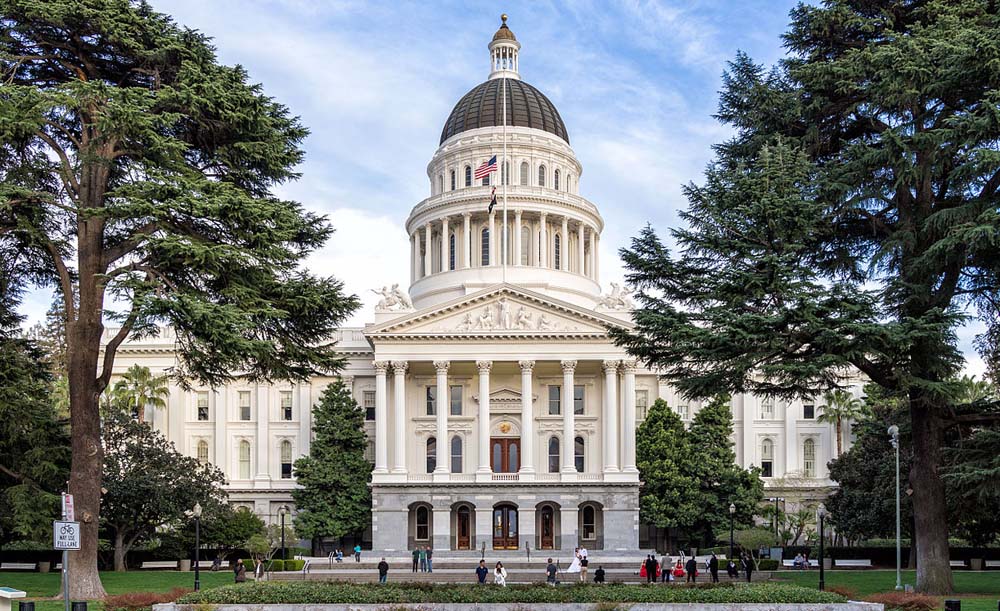
In no particular order, here are some of the California laws taking effect in 2025 that may impact your rights.
Paid Family Leave Expansion
Under AB 2123, employers can no longer require employees to use their accrued vacation time before accessing the state’s Paid Family Leave Program. Previously, employers could require employees to take up to two weeks of vacation time before accessing the leave.
The state-run program provides benefits to people taking time off to care for a family member, spend time with a new child or assist military family members under active duty.
Fertility Treatments Will Be Covered By Insurance
Starting in July 2025, individuals needing fertility treatments will be covered by insurance if they’re part of a large group health plan. (In California, large group health plans must have over 100 employees.) Procedures for “the diagnosis and treatment of infertility and fertility services” will be covered, to open up costly treatments like in vitro fertilization to more Californians. For individuals struggling with fertility issues, procedures like IVF can be prohibitively expensive, running into the tens of thousands of dollars.
“It’s simple: everyone who wants to should be able to start a family — without going broke,” Gov. Newsom said. Access will also be expanded to LGBTQ+ families. This law takes effect on July 1, 2025.
No License Needed
Come 2025, job postings can’t require that applicants have a valid driver’s license anymore — unless your potential employer believes you’ll actually need to drive as part of the job.
Also, the employer needs to reasonably believe that you cannot carry out the job’s duties using an alternate form of transportation.
Advocates of the law said that requiring a driver’s license for jobs that don’t involve driving is a form of employment discrimination.
Sick Leave for Smoky Days From Wildfires
A new law allows farm workers to take paid sick leave if the weather conditions are smoky due to wildfires. Starting Jan. 1, 2025, agricultural workers can log sick days for “smoke, heat, or flooding conditions created by a local or state emergency.” If their workplace is shuttered because of “smoke, heat, or flooding conditions,” they will also be entitled to paid sick time.
Monetizing Children on Social Media
Since 1939, child actors in California have been able to get a slice of their earnings thanks to the Coogan Law. Now, children who appear in vlog channels and on influencers’ accounts will also be entitled to payment by their adult caretakers.
Jackie Coogan was one of America’s first child stars, appearing in Charlie Chaplin’s “The Kid” in 1921. When Coogan turned 21, he learned that his family had squandered his fortune, prompting the 1939 passage of the Coogan Act, which requires parents to open a trust fund for their working children. Two laws signed by Newsom extend protections to children who appear on California content creators’ platforms like YouTube vlogs, podcasts, social media and streams. Trusts must be established to set aside at least 15% of the gross earnings.
Minors finally get their protection!
No Book Bans
California just made it a lot harder to ban books in public libraries. The Freedom to Read Act prohibits banning books because of the race, nationality, religion, gender identity, sexual orientation, disability, socioeconomic status, or political affiliation of a book’s subject, author, or intended audience. The law also protects library workers from being fired or disciplined if they refuse to remove a book.
“There is a growing movement to ban books nationwide, and this bill will ensure that Californians have access to books that offer diverse
perspectives,” bill author Assemblymember Al Muratsuchi said in a statement.
Treatment of Native Peoples Must Be Taught
Assembly Bill 1821 mandates that California public schools provide students a “foundation of understanding” surrounding the historical treatment of Native Americans during the Spanish mission period and the Gold Rush era.
“I’m proud of the progress California has made to reckon with the dark chapters of our past, and we’re committed to continuing this important work to promote equity, inclusion, and accountability for Native peoples,” Newsom said when signing the bill in September.
No More “Captive Audience” Meetings
A new law bans employers from requiring you to attend “captive audience” meetings. These meetings often have political, religious or anti-union messaging. Gov. Newsom signed the law, SB 399, earlier in 2024 taking effect now. It allows the California Labor Commissioner to fine companies up to $500 for “subjecting, or threatening to subject, an employee to discharge, discrimination, retaliation, or any other adverse action” if the employee does not attend a captive audience meeting.
A Ban on Hair Discrimination
Gov. Newsom signed bills intended to address current and historical racist discrimination, including those targeting hair (whether directly or indirectly). While the most prominent bill was a formal apology for California’s role in the slave trade, it also included AB 1815, by Assemblymember Akilah Weber, D-San Diego. That law strengthens anti-discrimination protections in the workplace by clarifying that the term “race” includes traits associated with race, such as hair texture or protective hairstyles.
Paid Family Leave and Disability Laws
Beginning Jan. 1, 2025, workers who take paid family leave or disability will get more money: SB 951, authored by Sen. Maria Elena Durazo, D-Los Angeles, in 2022 increases the programs’ wage replacement rates from 60-70% to 70-90% in the new year. Durazo said the hikes will allow more people to take time off to recover or bond with a new baby.
You might also like…
